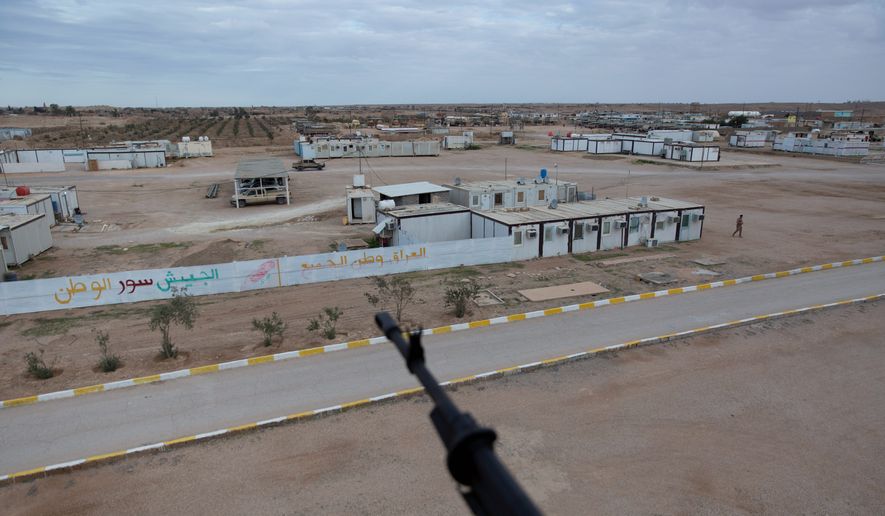Top U.S. national security advisers provided President Trump with expanded military options targeting Iran and its proxies late Sunday after U.S. forces launched successful airstrikes on Iranian-backed militias threatening U.S. troops in Iraq.
The president was briefed on the U.S. strikes launched earlier Sunday, in a meeting with Secretary of State Mike Pompeo, Defense Secretary Mark T. Esper and Joint Chiefs of Staff Chairman Gen. Mark A. Milley.
Mr. Esper said the briefing presented Mr. Trump with options for “additional actions as necessary to ensure that we act in our own self-defense and we deter further bad behavior from militia groups or from Iran.” The high-level discussion was held at Mr. Trump’s Mar-a-Lago resort in West Palm Beach, Florida, where he is spending the holidays.
The U.S. airstrikes Sunday by F-15 Strike Eagles included three targets in western Iraq and two in eastern Syria that were command-and-control facilities or weapons stockpiles of the Iranian-sponsored militia Kata’ib Hezbollah, Mr. Esper said. The Shiite militia is controlled and armed by Iran.
“The strikes were successful,” he said. “The pilots and aircraft returned back to base safely.”
U.S. officials said the militia carried out attacks on joint Iraq-U.S. facilities housing U.S. military forces.
Mr. Pompeo said the attack by the Iranian-backed militia had “threatened American forces” stationed in Iraq. In the past two months, the group has carried out 11 rocket attacks on military bases where U.S. soldiers were present.
“What we did is take a decisive response that makes clear what President Trump has said for months and months and months, which is that we will not stand for the Islamic Republic of Iran to take actions that put American men and women in jeopardy.”
The U.S. blames the militia for a rocket barrage Friday that killed a U.S. defense contractor at a military compound near Kirkuk, in northern Iraq. Officials said attackers fired as many as 30 rockets in Friday’s assault.
Iraq’s Joint Operations Command said in a statement that three U.S. airstrikes on Sunday evening Iraq time hit the headquarters of the Hezbollah Brigades at the Iraq-Syria border, killing four fighters.
Iraq’s Hezbollah Brigades, a separate force from the Lebanese group Hezbollah, operate under the umbrella of the state-sanctioned militias known collectively as the Popular Mobilization Forces. Many of them are supported by Iran.
Kataeb Hezbollah is led by Abu Mahdi al-Muhandis, one of Iraq’s most powerful men. He once battled U.S. troops and is now the deputy head of the Popular Mobilization Forces. In 2009, the State Department linked him to the elite Quds Force of Iran’s Revolutionary Guard, designated a foreign terrorist organization by Mr. Trump earlier this year.
The U.S. maintains some 5,000 troops in Iraq. They are there based on an invitation by the Iraqi government to assist and train in the fight against the Islamic State group.
The militia strike and U.S. counterstrike come as months of political turmoil roil Iraq.
• This story is based in part on wire service reports.
• Dave Boyer can be reached at dboyer@washingtontimes.com.




Please read our comment policy before commenting.